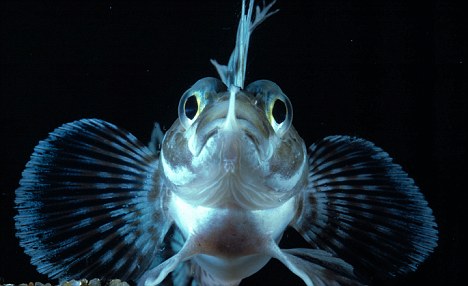It’s cold in the Antarctic Ocean, but things are heating up. Professor Thomas Near from the Yale Department of Ecology and Evolutionary Biology worked with a research group to study an ancient Antarctic fish lineage called notothenioids. These fish are key links in Antarctic food webs and the basis for several international fisheries. The researchers used DNA sequences from 89 notothenioid species to reconstruct the process of how they evolved and study their changes in habitat over the years. Their study, published in June in Nature Ecology & Evolution, showed that notothenioids are in danger from climate change and species invasion.
Historically, notothenioids have survived natural warming cycles through migration, such as between the Antarctic continent and its islands. “Continents tend to produce biodiversity that emigrates to islands,” said Dr. Near, “but the Antarctic islands are behaving like a continent.” In other words, studies showed that around Antarctica, the islands generate a diversity of marine life. Unfortunately, these island waters are now warming. This temperature rise allows fish that usually live in warmer water to invade and compete with native species like notothenioids. Notothenioids must now face both rising temperatures, which can alarmingly alter Antarctic marine ecosystems, as well as increased competition from invading species.
“This polar ecosystem has probably been fairly stable for 25-30 million years,” said Dr. Near. Now, climate change has brought unprecedented instability to Antarctic ecosystems and placed its most dominant lineage, notothenioids, in jeopardy. Dr. Near reminds us of our duty to address such problems: “With our dramatic utilization of natural resources comes responsibility for stewardship of the planet that we’ve perturbed.”

